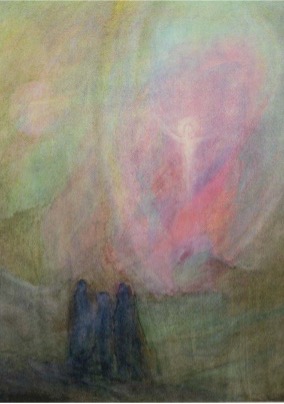Latest News
Kitchen Chat and more…
Kitchen Chat and more…

An Overview of Wills, Trusts and Other Estate-Planning Tools
Presented by Robb Creese
Saturday, Oct. 22
9:00 – 11:00 am, Pacific
10:00 am – 12:00 noon, Mountain
11:00 am – 1:00 pm, Central
12:00 noon – 2:00 pm, Eastern
Please join us as we explore legal plans you should make to prepare for your eventual crossing of the threshold.
Robb will emphasize the legal requirements for preparing your Will and other documents in virtually every U.S. state and Canadian province. There will be an opportunity for discussion and questions.
Robb Creese became active in The Christian Community in New York City in about 1980. Since March he’s been living in Longmont, Colorado, and takes part in the life of the congregation in Denver. He graduated cum laude from Cornell Law School and is currently licensed to practice law in New York State and within the Cherokee Nation.
Please register for this workshop through Faith DiVecchio, Legacy Coordinator
Email: giving@thechristiancommunity.org
“Young man, I say to you, stand up!” (Lk.7:14)
Standing up is a matter of willpower, which is needed to overcome gravity. That takes no effort as long as you are healthy and strong, but it is different when you are tired or exhausted. You have to do it yourself, with your own strength. No one else can do it for you. And it becomes even more difficult when you are sick or bedridden. Gravity and impotence then take their toll. Two forces are ceaselessly in conflict with each other; of old this has been expressed in the words “the spirit is willing, but the flesh is weak.”
When then the trial is over and a long, debilitating illness comes to an end, you can be incredibly thankful that you can stand on your two feet again and that you are free to stand and go where you will. Is that really only your own spirit that overcomes the weak body?
There is also another, more or less hidden force that wants to help us stand on our own two feet. It speaks to us every time we are about to lose courage or when despair strikes. That is the voice that called the youth of Nain out of death to life. That is the still, strong voice that goes with each one of us until death, into death and in life after death—the voice that calls out to us: “Stand up, let us go on.”
–Rev. Bastiaan Baan, September 25, 2022
 In the beginning was the word, and the word was with God, and the word was a god. He was in the beginning with God. All things came into being through him, and without him not one thing came into being. What has come into being had its life in him, and the life was the light of human beings. And the light is shining in the darkness, and the darkness has not taken hold of it.
In the beginning was the word, and the word was with God, and the word was a god. He was in the beginning with God. All things came into being through him, and without him not one thing came into being. What has come into being had its life in him, and the life was the light of human beings. And the light is shining in the darkness, and the darkness has not taken hold of it.
A man came into being, sent from God; his name: John. He came as a witness, to bear witness concerning the light, so that all people might find faith through him. He was not the light, but was there to bear witness concerning the light.
The true light, which lightens every human being, was coming into the world. He was in the world, and the world was made through him, and the world did not know him. He came to his own place, and his own people did not accept him. But to those who received him, he gave the power to become children of God: to those believing in his name, who were born not out of blood, nor out of the will of flesh, nor out of the will of a man, but out of God.
And the word became flesh and made his dwelling among us, and we beheld the revelation of his glory: a revelation as of the one born from the father, full of grace and truth. John bore witness concerning him and cried out, saying: “This was the one of whom I said: ‘The one coming after me has taken his place before me, for he was before me.’ ” For from his fullness we have all received, and grace for grace. For the law was given through Moses, but grace and truth came into being through Jesus Christ. No one has ever seen a god; the one born god, being in the inmost being of the father: he has made him known.
John 1
One hundred years ago today, the Act of Congregation of Man first appeared on earth in the form in which we know it today. It was brought out of the spiritual world to 45 men and women who had resolved to bring it out into the world to the best of their abilities. During those days a hundred years ago, every Act of Consecration was also an ordination. And from those people who were ordained and from their deeds, there has grown the movement to which we may all look for the renewal of our link to the spirit, for the healing of our ways on earth, for the healing of the earth.
For those who have taken up the calling of the priesthood, that first service still resounds, echoed every time the service is celebrated anywhere in the world, now in over twenty different languages. There are also closer links. Every time a priest celebrates the service, we may hear the echo of the first time that priest celebrated. And this is not limited to priests. Each of us can recall the first time we experienced the service. So, all of us are ultimately linked back to that one Act of Consecration of Man which took place a hundred years ago today.
We may stand at rest with that connection, for it is there now forever. But then we may ask: where will this great deed of a hundred years go into the future? The past is given; the future is filled with questions, questions which will find their answers according to our deeds.
Our creed begins in eternity. It continues through the great event of the past, into the present and the future, to end with the repeated word “may”, the realm of human freedom. In this realm of freedom lies the answer to the questions that may arise about the future arising from that great deed one hundred years ago.
September 16, 2022, Rev. Michael Brewer
Picture: The First Goetheanum. The first Act of Consecration of Man, was celebrated on the top story of the wing seen on the right.

